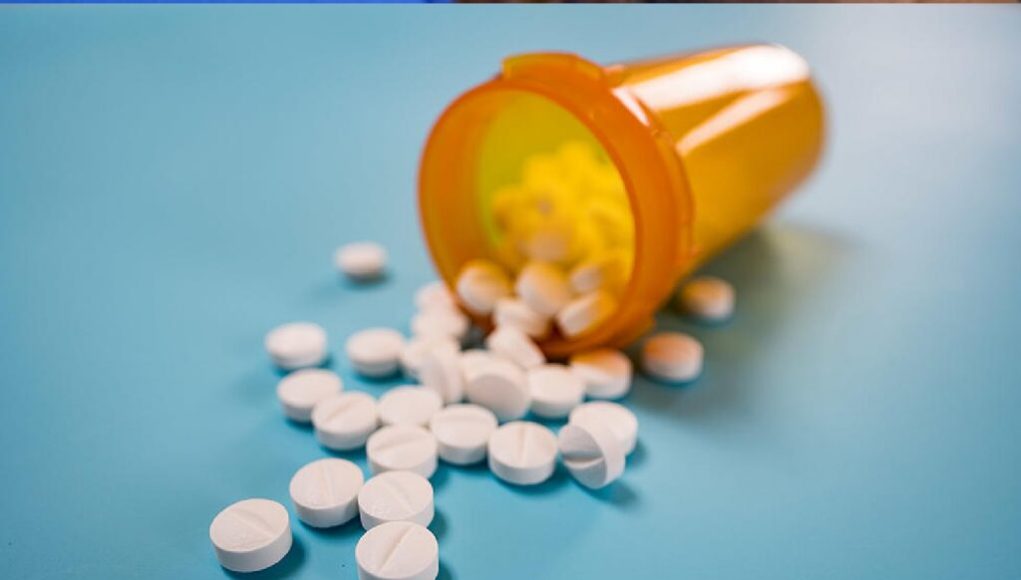
IN 2018, the National Bureau of Statistics, NBS, in cooperation with the United Nations Office on Drugs and Crime and the European Union conducted the first ever national drug use survey in the country. With a drug use prevalence of more than 14.4 per cent among Nigerians aged between 15 and 64 years – almost three times the global average of 5.5 per cent – the findings were truly preoccupying.
Then, a total of 14.3 million Nigerian adults had used illicit drugs or had made non-medical use of prescription drugs, primarily pharmaceutical opioids, during the preceding 12 months. The survey found a total of almost three million persons suffering from some form of drug use disorder – dwarfing the statistics of illnesses, such as HIV/AIDS and more recently COVID-19.
Drug use disorder is a multi-dimensional health and social problem. It severely affects the general health of users, making them significantly more susceptible to contract and pass on other illnesses, such as Hepatitis, HIV/AIDS and Tuberculosis.
Drug use in Nigeria has some particularities. While the most used drug – like in many other countries – is Cannabis, the use of Cocaine and Heroin is comparatively rare. The most dangerous widespread drug use is the non-medical consumption of Tramadol and similar pharmaceutical opioids, normally used in clinical pain management. As a matter of fact, West Africa is presently facing its very own opioid crisis of proportions similar to the one experienced in North America.
Since 2018, the situation may very well have further deteriorated. In a poll conducted by UNODC and UNICEF in June 2020 among 80,000 Nigerian youths, the majority felt that drug use had increased in the wake of COVID-19 related lockdowns, school-closures, and the economic downturn.
ENACT, a research programme funded by the European Union, predicts that the number of people who use drugs in Sub-Saharan Africa will increase approximately 2.5 fold by 2050, with the lion’s share in West Africa. For Nigeria, this projection signifies that it might have to grapple with more than 35 million drug users.
The Nigerian Government has recognised the urgency of the situation. In December 2018, President Buhari established the Presidential Advisory Committee for the Elimination of Drug Abuse, PACEDA. The Committee conducted indepth inquiries into the nature of drug use and the drug markets in the country as well as of the dedicated law enforcement, prevention and treatment capabilities.
The final report was submitted to Mr. President in October 2019. While follow-up action has been delayed due to the outbreak of COVID-19 and the ensuing economic crisis, government has been working on a new edition of the National Drug Control Master Plan 2021-2025.
While waiting for government’s next step, it appears worthwhile to reflect on how we got to where we are. How did Nigeria, which considered itself for many years primarily a transit country, become one of the primary drug consumers worldwide? The answer, to a large extent, is already implied in the question. Drug use, for long, was ignored. It was considered a vice of the West. Local consumption primarily affected the less wealthy in society.
Also, the spill-over effect expected to be caused by Nigeria’s role as a transit hub in the international cocaine trade did not materialise to the extent feared. Self-medication, a lack of access to appropriate pain medication and a largely un- or underregulated market for prescription drugs are likely to have fuelled the widespread use of pharmaceutical drugs for non-medical purposes.
With the very first national representative study on drug use conducted only in 2018, drug use could have festered and spread for decades essentially unobserved by policy makers. The response to drugs in Nigeria, also due to international pressures, focused for decades on supply reduction through law enforcement.
The primary objective was to stop the flow of drugs being trafficked by Latin American cartels and Nigerian organised crime groups from South America through West Africa to Europe. Moreover, drug use was – and by many still is – considered a personal moral failure rather than a health issue.
Going forward, what is needed is an urgent investment into the health and wellbeing of people, including future generations,if we want to prevent millions of Nigerians from falling prey to drugs. Drawing on the successful pilot testing of unplugged – an evidence-based drug prevention programme for secondary school children – PACEDA recommended to roll it out to all public and private schools in the country.
We also need to expand the network of community based drug drop-in centres to drive drug education and prevention at the grassroots, provide counselling and after-care services to drug users and their families, and to refer cases that require medical treatment to specialised facilities. We further must improve regulated access to prescription drugs for those in need, while curbing unregulated drug markets.
There is also an urgent need to improve treatment services for drug users. UNODC estimates that there are barely 1,000 drug treatment places in the country. Considering the three million Nigerians living with a drug use disorder and approximately 350,000 high-risk drug users, this is obviously inadequate and affects in particular female drug users who face much greater challenges in accessing such services.
This health and people-centred approach should be complemented by “smart” enforcement which focuses on intelligence-led operations targeting the organisers of the billion naira drug trade. In short, while the country’s response to drug use may come late, it is not too late. Building on its successes in responding to COVID-19, government has a unique opportunity to tackle the raging drug epidemic by acting on the PACEDA report with the same zeal and sense of purpose.
Source: VanguardNG


















































